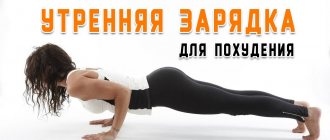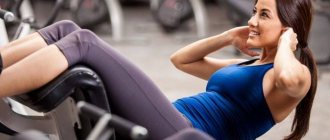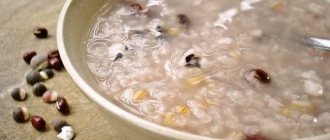An article for those who are thinking of quitting sports because “in winter it’s not noticeable under sweaters.” It often happens that in the spring and early summer we go to the gym to get in shape for the holidays. And as soon as the vacation ends, so does the motivation to exercise. It goes away until next spring. What happens to the body when we suddenly stop playing sports?
Want more sweets
People who do not exercise are more likely to indulge in junk food: fast food, chocolate, baked goods, etc. The fact is that such food does not contain the nutrients that athletes need. The body of an active person spends useful substances and therefore needs to be replenished. Accordingly, the athlete does not want junk food, but vegetables, protein products and cereals. A physically inactive person does not feel the body’s requests for healthy nutrition, so he is drawn to junk food.
What happens to the immune system and brain if you don’t exercise?
Sarcopenia, a lack of muscle tissue associated with its loss due to age or disease, is a truly serious problem. Sarcopenia is experienced by untrained people, as well as overweight people who give themselves excessive physical activity or do not exercise at all. When the load on the muscles is prohibitive (and for an untrained person, such a load can be a regular half-hour workout, as in the video with Jillian Michaels, or a lesson in the company of a fitness instructor who does not take into account your initial data), muscle tissue begins to be consumed instead of fat. The result is excess fat, weakness, poor endurance, refusal of physical activity and... an increased risk of cardiovascular disease.
Therefore, physical activity adequate to your endurance is not just an opportunity to show off impressive muscle relief, and muscles are not just a beautiful “accessory” of your body. A sufficient amount of muscle tissue makes it possible to prolong youth and reduce the risks of “vascular accidents.” Also, strength training helps to avoid excessive protein breakdown and normalize carbohydrate metabolism. All this makes you healthier. This is why it is more important to focus on lack of muscle rather than excess fat.
Keep a clear mind
Physical activity helps avoid memory and attention problems. Research has shown that exercise stimulates the production of new nerve cells. Motor activity and new information for the brain are inseparable. This is why when you exercise, new nerve cells begin to appear in the areas responsible for memory, and new connections are formed between existing neurons.
Physically active people are less likely to develop Alzheimer's disease and some other types of dementia. They also have a lower risk of strokes, which also often affect the ability to think, judge critically, remember and generate new ideas.
Complaints about memory and attention deterioration are not limited to older people. Young patients often report similar symptoms when visiting their doctor. The causes of memory impairment in older and younger people differ. The cause of memory problems in young people is most often not illness, but banal overwork, unreasonable organization of the daily routine, and lack of sleep. 40 minutes of exercise a day will help solve several problems at once: improving cerebral blood flow will have a positive effect on memory, attention, intelligence, including the ability to find innovative ideas and make spontaneous decisions. Evening exercise classes provide another bonus: they improve sleep structure and normalize the process of “packing” information into long-term memory.
Push back old age
Sarcopenia can be easily determined by the strength of your hand grip. There is a special device - a dynamometer, which allows you to find out muscle strength. Researchers armed themselves with dynamometers and conducted a study among older people who had suffered a myocardial infarction, and it brought important findings. The mortality rates of these patients depended most on the strength of their hand compression: the stronger the arm muscles, the greater the chances the experiment participants had for a long and happy life without a second heart attack. Another Canadian study of women over 85 found that low hand strength doubled the likelihood of dying in the next 9 years.
Researchers named walking speed as another important “indicator of old age.” Elderly people who were sufficiently resilient had normal hand grip strength. And old men with poor endurance and a too slow gait had insufficient strength in their arms and risked dying much more than their athletic peers.
Physically active people live 3.5–4 years longer. And their life is definitely better quality: aerobic physical activity lasting at least 150 minutes a week significantly reduces the risk of developing arterial hypertension, some heart diseases, depression, and type 2 diabetes. And if you exercise 150 to 300 minutes a week, you can confidently leave behind the risks of obesity, colon cancer, and, if you are a woman, breast cancer.
This is why any physical activity is better than no activity. You don't have to become a marathon record holder. But walking to work is a smart decision not only from an environmental point of view, but also from a health point of view.
Avoid fractures
Regular physical activity improves bone structure. As a result, age-related changes in bone tissue that lead to osteoporosis, or loss of bone matter, are slowed down. Therefore, adequate physical activity in older people, oddly enough, reduces the risk of falls and fractures. The need to “retire,” “remember your years,” and other exhortations is the path to muscle loss, osteoporosis, serious illness and disability.
Research shows that the increase in bone mineral density occurs most intensely with jumping training (strengthening the hip bones, which are especially vulnerable to fractures from falls in older people). However, you need to be careful here: jumping rope, for example, has many contraindications, including varicose veins and pain in the lower back, which are very common in older patients. However, walking, jogging, swimming, yoga are types of physical activity that also help in the prevention of osteoporosis and have virtually no contraindications.
Support immunity
Researchers have discovered an interesting phenomenon: for some reason, in many athletes, the level of blood neutrophils, which are important “defenders” of the immune system, is at the lower limit of normal. Does this mean that regular physical activity reduces immunity? Not at all: a decrease in the number of neutrophils only indicates a decrease in chronic inflammatory processes in the body. And this is a good sign.
Also, regular physical activity has a positive effect on the level of growth hormone, glucagon, prolactin and thyroid hormones. And this is another argument in favor of the positive effect of physical activity on immunity.
Physical activity should be adequate to your fitness, weight and endurance. Therefore, before rushing to the gym, it is better to consult a doctor. For example, if you are overweight, it is better not to start running - there is a high risk of harming the knee joints and lumbar spine. It is better to discuss the possibility of swimming in the pool with chronic ear diseases with an ENT doctor. The first workout may well last 15 minutes and be a walk in the park on a weekend. The main thing is to start, and the positive dopamine reinforcement will do the rest!
Metabolic slowdown
It's good when nature gives some people a high metabolic rate. However, even for the thinnest of us, metabolic processes slow down as we age. The passage of time cannot be changed or reversed. Therefore, if you want to continue to stay in excellent physical shape, we advise you to reconsider your approach to physical activity. At least 3 times a week, perform a set of exercises that alternate cardio and weight lifting. If you don't train your muscles, muscle loss and an increase in fat percentage will become more obvious every year.
You don't get enough sleep

The next time insomnia has you tossing and turning, think about how you're using up your energy during the day. Unfortunately, if you have sleep problems, they will haunt you in the long run. Scientific research shows that regular exercise increases total sleep time and makes people feel more alert. The effect can be achieved regardless of other factors: BMI, bad habits, general health or depression.
Planning a break
To get back to square one where we started, when you know you have a break from training and will be forced or voluntarily sent into a recovery period, we can use this idea of supercompensation to our advantage. Instead of experiencing fitness losses, we can actually increase our fitness and strength in our free time. Here's how to do it:
- Determine when your training break will occur.
- In your training plan, two to three weeks before your break, eliminate your normal rest and recovery days and instead begin to gradually increase your training load. This may include extra miles of running or cycling, more weight on the bar, or circuit and tri-set training.
- In the last week before your break, dig deep and feel free to ignore that inner voice of reason that I usually encourage you to listen to. Get out of bed and change into your workout clothes even though you want to doze off and call it a day off knowing you'll soon have everything else you need.
- Be careful not to push yourself completely into overtraining, but definitely allow yourself to accumulate more fatigue than usual. Don't be unreasonable, but as we say in business, don't be a wuss.

Break from training
Here's an interesting study that was published in Medicine and Science in Sports and Exercise that serves as a great example of supercompensation and recovery. In this study, the researchers divided fit triathletes into two groups. Both groups spent one week doing their regular workouts, but then for the next three weeks, one group continued that regular workout while the other group increased their workouts by 40%. Finally, both groups did what's called a taper (which is a targeted and gradual decrease in training level) for a week before the study concluded with a final performance test.
Just like we plan this beach vacation, their goal was to push the 40% increase group into a state of functional overload. As you'd expect, the overtraining group's performance steadily deteriorated over the three challenging weeks, but then, after rest, their fitness overcompensated and they achieved the absolute best results in the study.
Cardio | 9 Great Exercises for People Who Hate Running
By planning for the tough weeks leading up to a holiday or break, we can not only avoid overtraining, losing fitness and making up for lost time, but we can actually improve our fitness while relaxing on the beach. With the caveat that this does not give us the right to completely go into deep, stagnant rest. We still need to give our body what it needs to repair and rebuild (general movement, good food, adequate hydration, deep sleep, etc.). We don't have to pack weights in our carry-on luggage or set an alarm to get up before dawn to run a quick 10k before our loved ones wake up to stick to our awesome fitness goals.
- Coronavirus: China bans 11 million residents from leaving city
- Benefits of gelatin | How to take gelatin for joints
- Training program for spinal hernia | Train smart!
- Lifespan | Find out how to live longer
- Quitting alcohol | Effect on the body | Find out what's what!











